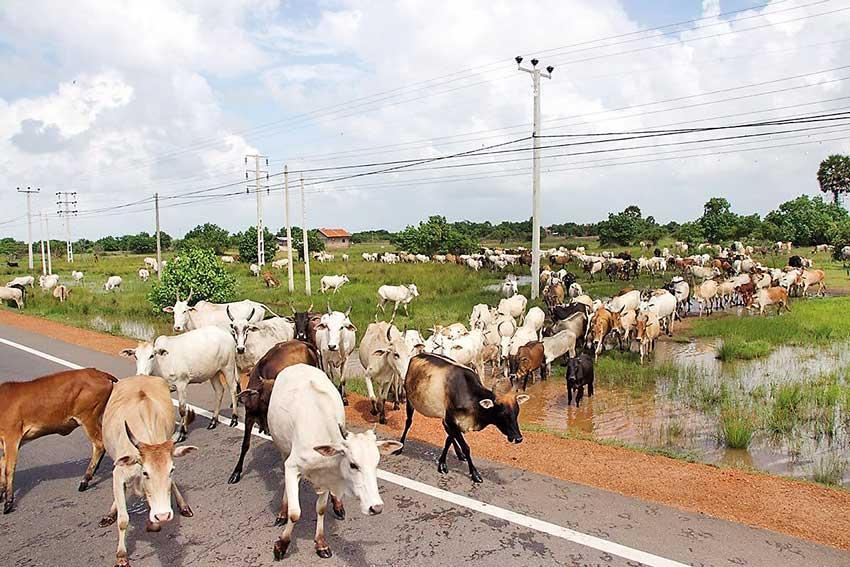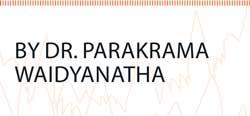14 Sep 2020 - {{hitsCtrl.values.hits}}

 The media reported some days ago of a proposal by the prime minister, to bring legislation to stop cattle slaughter and apparently majority of the government MPs are supportive of his proposal. Many Buddhist monks have also risen vehemently supporting the proposal. Have the proponents and the supporters looked wisely into all facts of the matter before rushing into this decision?
The media reported some days ago of a proposal by the prime minister, to bring legislation to stop cattle slaughter and apparently majority of the government MPs are supportive of his proposal. Many Buddhist monks have also risen vehemently supporting the proposal. Have the proponents and the supporters looked wisely into all facts of the matter before rushing into this decision?
Agriculture, whether it be crop or animal husbandry, is no longer a mere way of life but income-generating ventures, off which farmers live. The sale of the animal or its meat is an important share of income.
It is largely the bulls and bull calves that are slaughtered, not that cows are totally spared. With the use of bullock cart for transport and bulls for ploughing rapidly on the decline with the introduction of vehicles and tractors, there is a large concomitant decline in the demand for bulls other than for meat and disposal of bulls and bull calves has become a problem to cattle keepers other than for meat.
While the religious Buddhists and Hindus may support the proposal, the Muslims obviously will object as beef is a major source of their meat, other than mutton and chicken and Christians and Catholics may keep quiet.
As per the statistics (2015) of the Animal Production Health Department, of the cattle and buffalo populations of about 1.3 million neat cattle and 400,000 buffalos, about 12 percent and 9 percent culled animals comprising infertile and aged cows, respectively go for meat, apart from 20 percent of each breed of male animals. In brief, 25-30 percent of the animal population ends up on the butcher’s table.
Many Buddhist temples now have the popular practice of salvaging cattle from slaughter by buying them and giving them free of charge to cattle rearers. Of course, how many of them also eventually end up in the slaughter house is not known. However, this venture is mere ‘a drop in the ocean’, considering the numbers slaughtered daily.
There are many lessons we can learn from India on this matter. Acharya Vinoba Bhave, widely revered as the spiritual heir of India’s independence leader Mahathma Gandhi, campaigning against cattle slaughter and appealing to rich landowners to donate land to landless farmers, walked from village to village some 40,000 miles on the mission during his life time. History records that his mission was only partly successful.
However, over the years, sparing culled animals, both cows and bulls, was a serious problem in that they were competing for pasture and fodder with productive milch cows and bulls working the fields. The anti-cattle slaughter project gradually lost momentum with his death and the land project too was not a total success either as some of the donated lands were hardly cultivated.
Slaughter of cattle, especially cows, is a controversial topic in India because of the cow’s traditional status as a venerated and respected animal and the ethical principle of Ahinsa to some sects of Hinduism, Sikhism, Jainism and Buddhism. It is however a major source of meat for Muslims as well as for adherents of some other non-vedic, Abrahamic and other religions.
From the time of partition and drafting of the new Indian constitution, there had been continuous agitation by Hindus and several other above-mentioned religious sects to incorporate relevant provisions in the constitution banning cattle slaughter.
However, the draft Indian constitution of October 1947 did not contain any reference to cattle slaughter but a subsequent provision in February 1948, because of agitations, proposed as Article 38A, referred to the matter as follows: “The state shall endeavour to organise agriculture and animal husbandry on modern and scientific lines and in particular take steps to preserve, protect and improve the useful breeds of cattle and ban the slaughter of cows and other useful cattle, specially milch cattle and of child-bearing age, young stock and draught cattle.”
This provision then does not prohibit slaughter of unproductive animals. The Indian government has, in Article 38 A of the constitution, tactfully enabled economics to supersede ethic and religious considerations and we have here a lesson to learn. In fact, that the constitutional amendment was conceived in deceit was the view of many.
Twenty out of the 28 states in India currently have various laws regulating the act of cow slaughter, prohibiting the slaughter of cows. Only the boneless meat of buffalo, meat of goat and sheep and birds are permitted for export as per the current Indian laws.
India feels that the restriction on export to only boneless meat with a ban on meat with bones will add to the brand image of Indian meat. However, a Supreme Court of India suspended the ban on sale of cattle in its judgement in July 2017, giving relief to beef and leather industries.
Unbelievably, as per a 2016 United States Department of Agriculture review, India has rapidly grown to become the world’s largest beef exporter, accounting for 20 percent of world’s beef trade, based on its large water buffalo meat processing industry.
Coming back to the premier’s proposal, total banning of cattle slaughter would with time drag the country into a serious dilemma of increased competition between productive cattle such as cows and draft bulls and unproductive ones, bulls and old cattle, for limited pasture and fodder, the very same reason why Vinoba Bhave’s mission on cattle slaughter stoppage failed.
Already pasture and fodder limitations are a serious constraint to expansion of our milk production. Shortage of pasture is not an uncommon sight during dry weather, especially in the dry zone.
The manner in which animals for slaughter is usually handled and the method of slaughter here is often very cruel and disgusting. It should be a great relief if there are at least humane methods of slaughter in place as in developed countries and laws regulating slaughter technology to ensure them.
Is only cattle slaughter sin? What about hundreds of chicken, goats and pigs that are slaughtered and tonnes of fish caught daily? Aren’t those deeds sin? And our lawmakers are so irrational as to stop sale of meat on some poya days but not fish. All life is equally precious.
24 Dec 2024 9 hours ago
24 Dec 2024 24 Dec 2024
24 Dec 2024 24 Dec 2024
24 Dec 2024 24 Dec 2024
24 Dec 2024 24 Dec 2024